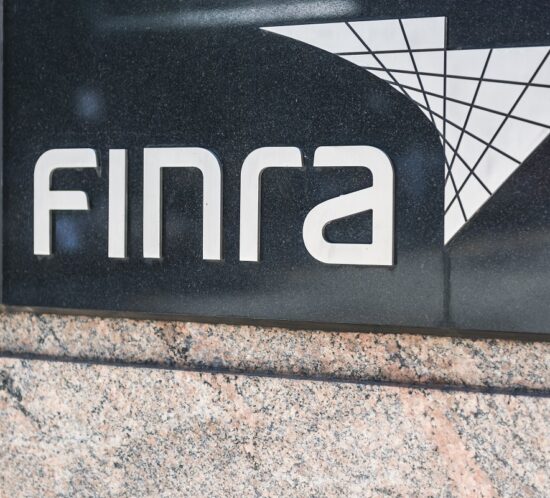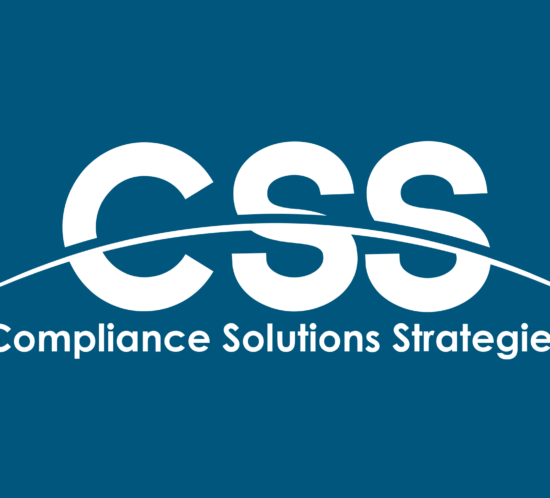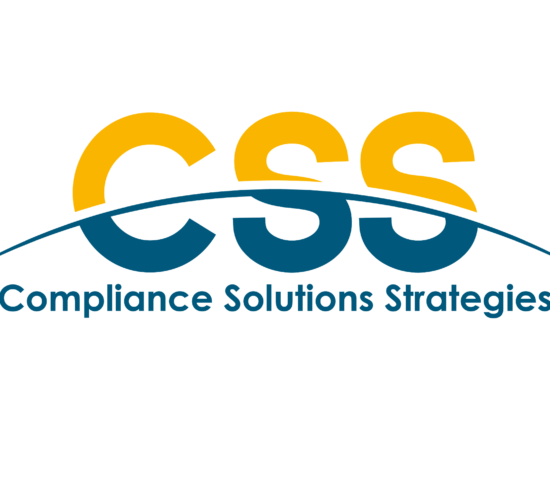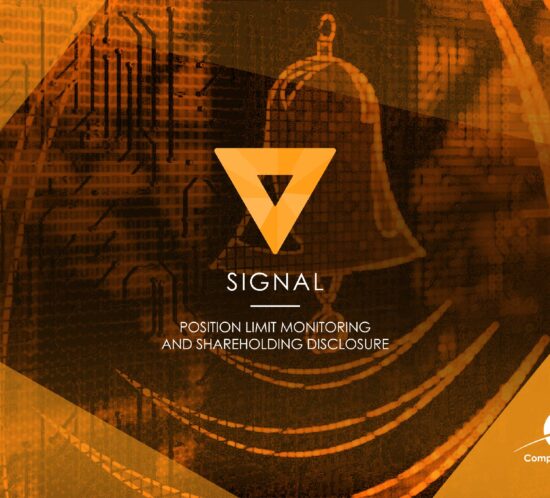Compliance Lessons Learned in 2019
Now that we are in mid-January, a few things are evident. We have likely broken one or more New Year’s resolutions, the effect of any rest over the holidays has worn off and we need to complete our annual compliance reviews for 2019 and firm up our 2020 plans.
While I don’t have solid advice on the first two points, looking back at the lessons of 2019 can help us as we complete our annual review and look ahead.
Lesson 1: Protect the Retail Investor
Since assuming the role of SEC Chair in 2017, Jay Clayton has stressed the importance of protecting the retail investor. The SEC commissioners and staff have been clear and consistent in this message through rulemaking, guidance and examinations. Examples include:
- In their 2019 Examination Priorities release, the Office of Compliance Inspections and Examinations (OCIE) of the SEC stressed the importance of protecting the retail investor, including those saving for retirement.
- On June 5, the SEC adopted a fiduciary rulemaking package. Included in that package was Regulation Best Interest (Reg BI) for broker-dealers, which raises the standard of care for a broker-dealer to act in the client’s best interest. In conjunction with this, the SEC also adopted a requirement for broker-dealers and investment advisers to provide their retail customers with a “Relationship Summary” on new Form CRS. This form will need to be filed by June 30, 2020. Also included was the Commission Interpretation Regarding Standard of Conduct for Investment Advisers (Interpretation), which is discussed below, and the Commission Interpretation Regarding the Solely Incidental Prong of the Broker-Dealer Exclusion from the Definition of Investment Adviser.
Lesson 2: Disclose, Disclose and Disclose Some More
Clear and accurate disclosure is at the heart of a productive client relationship. One area of focus for the SEC in 2019 was around the use of the word “may” in client disclosures. The SEC staff has stated that an adviser should not say that it “may” do something when it will always do that thing or can articulate the circumstances under which it will do that thing. In the Interpretation, the SEC stated that disclosing that an adviser “may” have a particular conflict is not adequate when the conflict actually exists.
Further, the failure to disclose fully conflicts through the use of the words “may” or “could” was reflected in several enforcement actions. In October, the staff built on the Interpretation with a frequently asked questions (FAQ) release regarding disclosure of investment adviser compensation. In the FAQ, the staff addressed topics relating to revenue sharing and other compensation arrangements, the conflicts presented and the expected disclosures to clients.
We also note that Reg BI states that a broker-dealer’s obligation to act in its client’s best interest includes a disclosure obligation. This obligation requires a broker-dealer to provide certain prescribed disclosures before or at the time of the recommendations, about the recommendation and the relationship between the retail customer and the broker-dealer. Such disclosures must address all material facts relating to the scope and terms of the relationship with the retail customer, including capacity as a broker-dealer, material fees and costs, and type and scope of services.
Lesson 3: Compliance Never Sleeps
For seasoned compliance professionals, this may not be a new lesson, but the pace of regulatory activity in 2019 had most of us gasping for air. In 2019:
- Mutual funds fully implemented the liquidity risk management rules
- As noted above, the SEC adopted the fiduciary rulemaking package
- The SEC issued guidance for advisers with respect to proxy voting
- The SEC proposed new advertising rules
- New derivatives rules were proposed for mutual funds
- FINRA announced a reorganization of its exam function
- Many advisers began preparations for the California Consumer Privacy Act, effective January 1, 2020
- Cybersecurity continues to be a major concern for us all.
SEC Chair Clayton has indicated a desire to meet the targets set forth in the Commission’s rulemaking agenda, giving us a realistic look at what’s ahead. For compliance teams, applying the lessons of 2019 will help us meet our obligations as we move into the new decade
Need compliance help? CSS offers a thorough range of compliance management services that are designed to help clients meet their regulatory responsibilities while allowing them to focus on their core businesses. Check out our services or contact us for more information.
CSS Launches First Form CRS Software Tool In Market
Global RegTech provider Compliance Solutions Strategies (CSS) today announces its release of Form CRS Automator, the market’s first comprehensive and fully customizable software solution designed to help firms meet the upcoming requirements of Form CRS which has been introduced by the Securities and Exchange Commission (SEC). CSS’s proprietary and Web-based tool gives regulated firms the ability to meet this new obligation and produce the required Form CRS quickly and efficiently.
On June 5, 2019, the SEC adopted new rules making all SEC-registered investment advisers (RIAs) and broker-dealers (BDs) that provide services to retail investors required to create a new Form ADV, Part 3, also known as a Relationship Summary. The resulting Form CRS plays a critical role in the SEC’s broader rulemaking efforts to protect Main Street investors and to address investor confusion over the differences between RIAs and BDs. The new regulations require RIAs and BDs to develop and deliver to retail investors two-page documents, (or four pages for dual registrants and affiliates) allowing them to compare services, fees, conflicts of interest, and other key information about RIAs and BDs in “simple, easy-to-understand” language.
Facing a June 30, 2020 deadline, many RIAs and BDs are challenged to assemble compliant and accurate information while correctly interpreting the SEC’s strict Form CRS requirements. To streamline this process, CSS’s Form CRS Automator generates disclosure that is guaranteed to be consistent with existing regulatory filings, including more than 70 data points in Form ADV, Part 1A.
“We are excited to offer RIAs and BDs a custom tool for automating the creation of Form CRS,” stated Jackie Hallihan, Executive Director of Compliance Services at CSS. “Our Form CRS Automator solution supports efficient production of the form by deriving data from a firm’s Form ADV or Form BD or both.”
“Many regulated firms are understandably concerned about how they are going to digest the SEC’s 524-page Form CRS Adopting Release and 18 pages of instructions,” added Marques Keith, Executive Director of CSS’s Compliance Services. “CSS’s Form CRS Automator software solves this problem. Firms can use the solution to launch a simple process to complete a Form CRS that meets the SEC’s requirements.”
In addition to introducing Form CRS, the SEC’s June rulemaking also adopted Regulation Best Interest (Reg BI), which elevates the standard of care owed by BDs to their retail customers. CSS is responding by offering its BD clients new service packages to address the resulting requirements of Reg BI.
“We were really impressed seeing such an innovative, thorough solution for the investment adviser industry,” stated Debra DeVoe, the Chief Compliance Officer of Envestnet Asset Management. “CSS really delivered on this.”
For more information or to purchase Form CRS Automator, please email: FormCRS@cssregtech.com or fill out our form here.
FINRA Announces Revamped Examination and Risk Monitoring Program
FINRA has consolidated its three examination programs into a single program, a process that started in October 2018. As part of this consolidation, on December 12, 2019 FINRA announced the senior leadership team under the new examination and risk monitoring structure within the organization. The goal of the reorganization is to drive more effective risk monitoring by better identifying industry trends, promoting more examination consistency, eliminating duplication of examination efforts and creating a single point of accountability for the exams.
Going forward, all FINRA member firms will fall into one of five business model categories:
- Retail
- Capital Markets
- Carrying and Clearing
- Trading and Execution
- Diversified
Each of these categories will consist of several sub-groups to more precisely categorize firms with similar business models and activities. Each category is headed by a senior leader and each firm will be assigned a single point of accountability, with the leader having ultimate responsibility for the ongoing risk monitoring, risk assessment, planning and scoping of examinations tailored to the risks of a firm’s business activities. FINRA has started notifying each member firm of its single point of accountability and its new risk monitoring teams. This new structure will be implemented as part of FINRA’s 2020 examination program.
As previously announced by FINRA, exams conducted pursuant to FINRA’s Regulatory Service Agreements (RSAs) with exchange member firms will be performed by a separate, specialized unit housed in FINRA’s Market Regulation Department to ensure consistency across RSA exams, provide dedicated resources to RSA-specific rules and trading, and promote economies of scale for RSA client work. Market Regulation will also have primary responsibility for executing exams for the Trading and Execution firm grouping, working in close coordination with the consolidated FINRA Examination and Risk Monitoring team.
The senior leadership team consists of:
- Tom Nelli, Senior Vice President – Will lead the teams responsible for executing the examinations, setting standards across the firm groupings, and quality assurance testing.
- Ornella Bergeron, Senior Vice President – Will lead the Single Point of Accountability and Risk Monitoring teams for the Carrying and Clearing and Diversified firm groups.
- Bill St. Louis, Senior Vice President – Will lead the Single Point of Accountability and Risk Monitoring teams for the Retail and Capital Markets firm groups.
- Tim Thompson, Senior Vice President – Will lead the Single Point of Accountability and Risk Monitoring teams for the Trading and Execution firm group.
Action items
First, if your FINRA coordinator has not yet contacted your firm, consider reaching out to discuss the new integrated examination program and how it will impact your firm. Second, review the many tools and checklists available on FINRA’s website to determine which ones can improve your firm’s compliance, supervisory and risk monitoring programs. Finally, keep an eye out for FINRA’s examination priorities letter, expected in January 2020, and if you haven’t yet reviewed FINRA’s examination priorities letter for 2019, please do so ASAP, and identify any topics that are applicable to your firm’s business model and revisit your firm’s oversight in these areas.
If you need more help, CSS providers broker-dealer services to assist you in meeting your compliance obligations. Contact us for more.
Tobias Degsell to Discuss ‘The Art of Data’ at CSS 2020 Regulatory Compliance Forum

Tobias Degsell
For years, Tobias Degsell served as a curator and museum educator at the Nobel Prize Museum, an institution renowned for its highlighting of creativity in the modern era, technological advances, and a focus on the future.
These days, he travels around the world to speak to business organizations about innovation and growth.
On March 5, 2020, he will deliver a feature presentation at the Forum de conformité réglementaire CSS 2020 entitled: “The Art of Data: Is the Definition of Intelligence the Ability to Adapt to Change?”
As organizations around the world know, data is more plentiful than ever, and the corresponding regulations that govern that data continue to expand. How are these processes best managed, both presently and in the future? For now, philosophies differ based upon industries, approaches, even personalities, even as they remain crucial to a business’s growth.
CSS is an organization driven by data and backed by service. We were recently honored with an inclusion to the RegTech 100 for 2020, a list recognizing the world’s most innovative RegTech companies. Our solutions help mitigate vendor risk by allowing clients to address a range of regulatory compliance requirements.
Join us in London to hear more about Tobias Degsell’s views on data, as well as how your peers are addressing the challenge. For more information on the London event, click any of the following links:
Overview | Agenda | Speakers | Location | Registration
CSS and aosphere Collaboration Takes Global Threshold Management to a New Level
London, 18 December 2019 – Global RegTech provider Compliance Solutions Strategies (CSS) is pleased to announce its collaboration with aosphere LLP, an affiliate of international legal practice Allen & Overy. CSS will leverage the detailed legal memoranda and reports on global shareholder disclosure legislation contained in aosphere’s online legal service Rulefinder Shareholder Disclosure (SD) to further enhance its Signal software platform, the leading rules engine solution for both global ownership threshold management and position limit monitoring.
Staying informed and responding to changes in shareholding disclosure obligations across multiple jurisdictions is a formidable challenge facing global investment institutions. Since its launch in 2015 and utilizing CSS’s own in-house team of legal experts, Signal has grown its roster of clients to include leading hedge funds and global asset managers in Europe and North America. Today, the solution addresses a breadth of requirements including substantial shareholding disclosure and position limit monitoring in addition to compliance with restrictions attached to issuer-specific limits, sensitive industries and takeover panels. Through CSS’s collaboration with aosphere, the users of Signal are assured of accurate disclosure compliance and transparency, incorporating the most comprehensive set of legal data on shareholding disclosure obligations in the market and supplemented by the expertise of CSS’s internal team.
“We’re pleased to complement CSS’s Signal compliance offering with our world-class Rulefinder service, which provides a detailed analysis of global reporting obligations,” said Marc-Henri Chamay, Chief Executive, aosphere LLP.
Signal streamlines the investment management process, delivering immediate gains in scale and efficiency through the automation of portfolio monitoring and reporting. Deployable in the cloud, through a hosted model or within a client’s internal compliance infrastructure, users have access to a single platform to track all their global threshold disclosure and position limit requirements. Signal compares holdings to relevant regulatory and exchange thresholds in more than 90 jurisdictions, issues immediate alerts when action is required and generates pre-populated disclosure notifications for regulatory filing obligations.
“Our strategic collaboration with aosphere builds upon the intellectual capital of our team of legal experts and significantly enhances Signal which is an anchor product within CSS’s suite of global regulatory solutions,” said John Lee, President, CSS. “As we make ongoing investments in the Signal platform, leveraging the regulatory coverage and expertise of aosphere will help accelerate the delivery of additional ‘first-to-market’ product modules in the coming year and beyond.”
CSS & aosphere Collaboration Takes Global Threshold Management to the Next Level
 Staying informed and responding to changes in shareholding disclosure obligations across multiple jurisdictions is a formidable challenge facing global investment institutions. Since its launch in 2015, Signal – CSS’s shareholding disclosure solution – has grown its roster of clients to include leading hedge funds and global asset managers in Europe and North America. Today, the solution addresses a breadth of requirements including substantial shareholding disclosure and position limit monitoring in addition to compliance with restrictions attached to issuer-specific limits, sensitive industries and takeover panels.
Staying informed and responding to changes in shareholding disclosure obligations across multiple jurisdictions is a formidable challenge facing global investment institutions. Since its launch in 2015, Signal – CSS’s shareholding disclosure solution – has grown its roster of clients to include leading hedge funds and global asset managers in Europe and North America. Today, the solution addresses a breadth of requirements including substantial shareholding disclosure and position limit monitoring in addition to compliance with restrictions attached to issuer-specific limits, sensitive industries and takeover panels.
 Signal is already the leading rules engine solution for both global ownership threshold management and position limit monitoring, but now, CSS proudly announces its next evolution. On Wednesday, we officially entered a collaboration with aosphere LLP, which allows CSS to leverage the detailed legal memoranda and reports on global shareholder disclosure legislation contained in aosphere’s online legal service Rulefinder Shareholder Disclosure (SD).
Signal is already the leading rules engine solution for both global ownership threshold management and position limit monitoring, but now, CSS proudly announces its next evolution. On Wednesday, we officially entered a collaboration with aosphere LLP, which allows CSS to leverage the detailed legal memoranda and reports on global shareholder disclosure legislation contained in aosphere’s online legal service Rulefinder Shareholder Disclosure (SD).
This enhancement clearly takes global threshold management to the next level. Through CSS’s collaboration with aosphere, Signal users are assured of accurate disclosure compliance and transparency, incorporating the most comprehensive set of legal data on shareholding disclosure obligations in the market and supplemented by the expertise of CSS’s internal team.
For more on what Signal can do, visit the Signal page or contact us.








